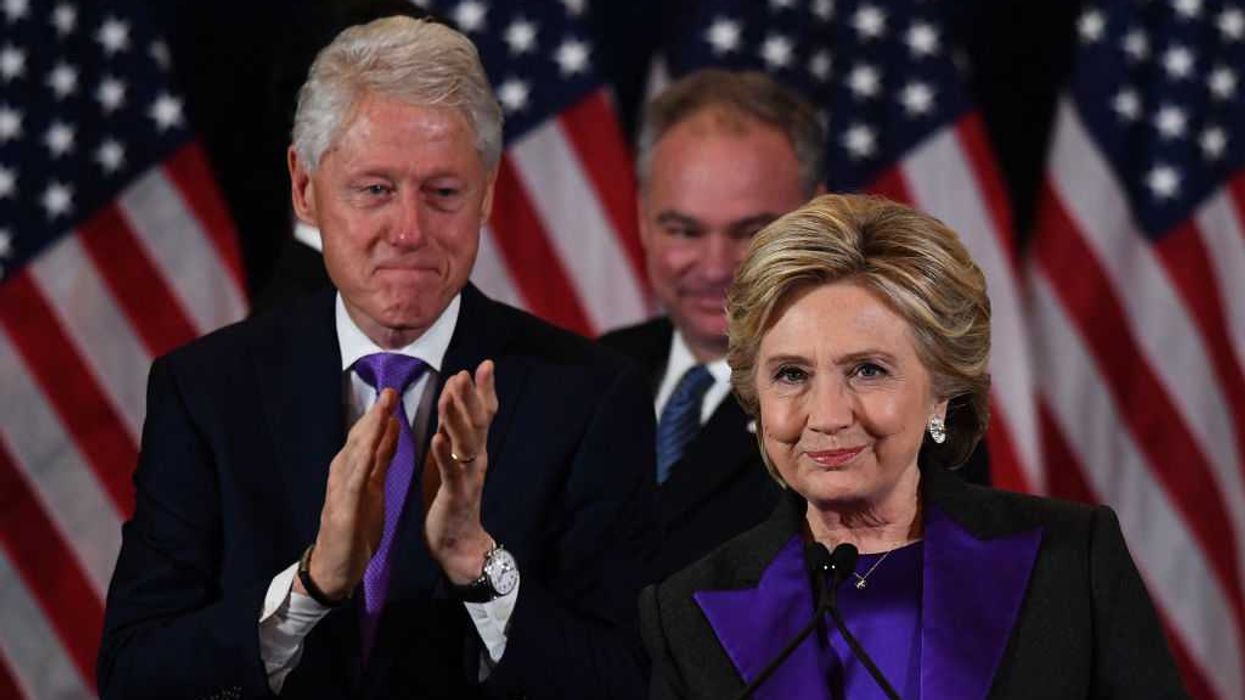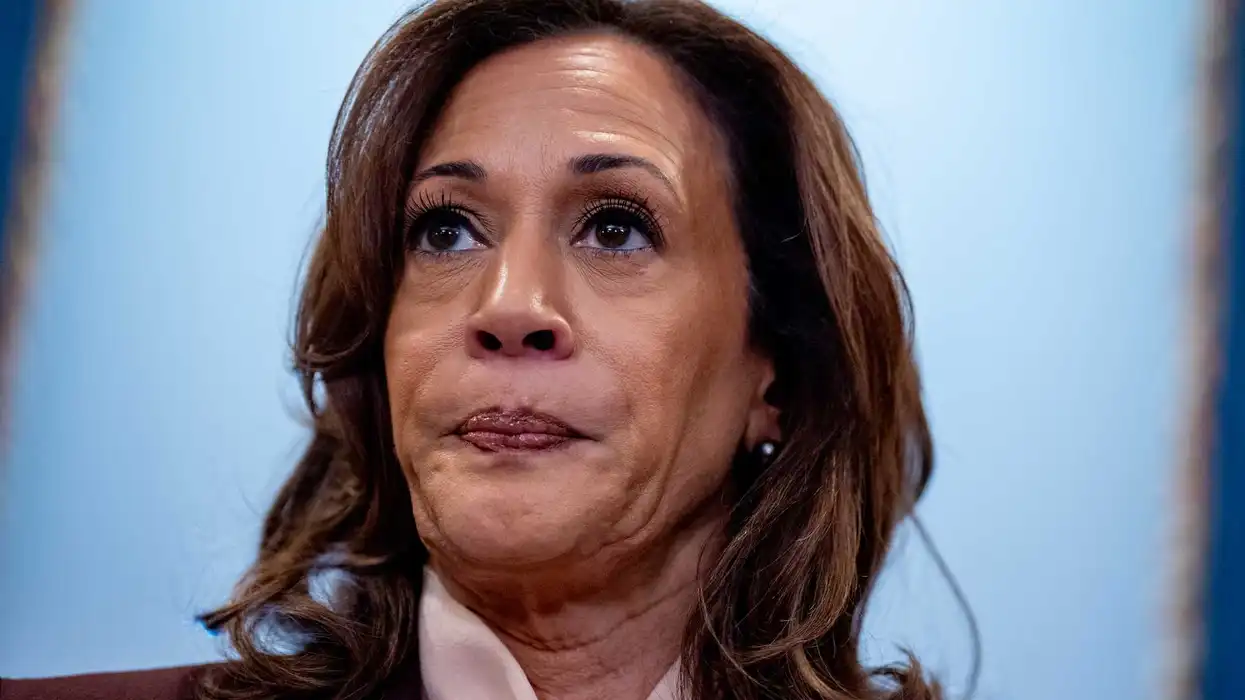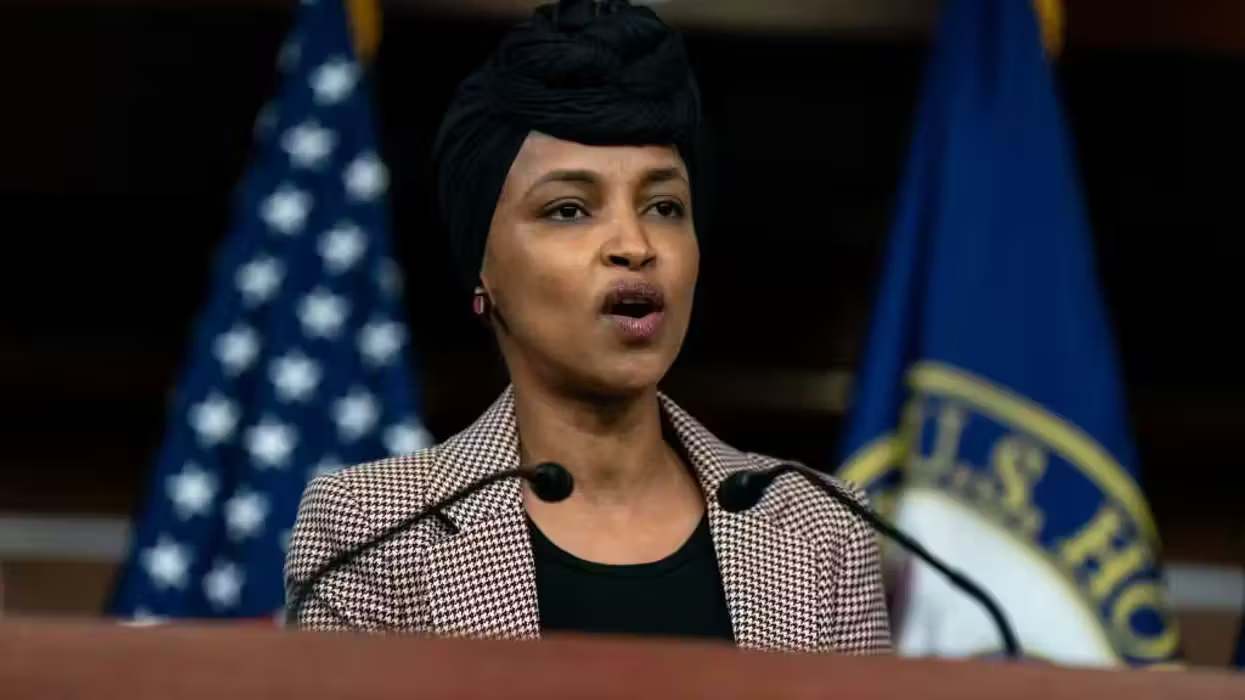 U.S. Secretary of State John Kerry on Tuesday, Feb. 18, 2014, in Paris. Kerry stopped in Tunis en route from Abu Dhabi to Paris, where on Wednesday he is scheduled to meet Palestinian President Mahmoud Abbas (AP)
U.S. Secretary of State John Kerry on Tuesday, Feb. 18, 2014, in Paris. Kerry stopped in Tunis en route from Abu Dhabi to Paris, where on Wednesday he is scheduled to meet Palestinian President Mahmoud Abbas (AP)
WASHINGTON (TheBlaze/AP) -- Secretary of State John Kerry says the United States is planning to provide Ukraine with $1 billion in loan guarantees and will consider additional direct assistance to the former Soviet republic.
Speaking to reporters at the State Department on Wednesday, Kerry said it was “urgent to move forward” in assisting Ukraine following the ouster of its Russian-backed president.
But he said it was also urgent for Ukraine’s interim authorities to enact reforms, curb corruption, and prepare free and fair elections.
“I don’t think it’s enough to be heralding the advent of democracy and not doing anything,” Kerry said.
The U.S. aid would be part of a planned massive international assistance package that was expected to include European contributions as well as loans from global financial institutions.
The announcement comes as the leaders of Ukraine’s protest movement on Wednesday proposed a top legislator as the country’s next prime minister, while Russian President Vladimir Putin ordered major military exercises just across the border in a show of force and apparent displeasure over the country’s new direction.
The new government, which is expected to be formally approved by parliament Thursday, will face the hugely complicated task of restoring stability in a country that is deeply divided politically and on the verge of financial collapse. The country’s pro-Russian president, Viktor Yanukovych, fled the capital over the weekend.
At Kiev’s Independence Square, the heart of the protest movement against Yanukovych, the interim leaders who seized control after he fled proposed Arseniy Yatsenyuk as the country’s new prime minister.
Yatsenyuk, 39, is a millionaire former banker who served as economy minister, foreign minister and parliamentary speaker before Yanukovych took office in 2010. Widely viewed as a technocratic reformer, he appears to enjoy the support of the U.S.
The top U.S. diplomat for Europe, Victoria Nuland, was overheard discussing Yatsenyuk and other Ukrainian opposition figures in a bugged phone called that was leaked, saying “I think Yats is the guy who’s got the economic experience, the governing experience.”
One of the first jobs for Yatsenyuk and other members of his new Cabinet will be seeking outside financial help from the European Union and the International Monetary Fund. Economists say Ukraine is close to financial collapse, with its currency under pressure and its treasury almost empty. The acting finance minister has said Ukraine will need $35 billion in bailout loans to get through the next two years.
Any such deal will require a new prime minister to take unpopular steps, such as raising the price of gas to consumers. The state gas company charges as little as one fifth of what it pays for imported Russian gas. The IMF unsuccessfully pressed Ukraine to halt the practice under two earlier bailouts, and halted aid when Kiev wouldn’t comply.
A bailout may come with the condition that Ukraine lets its currency fall against the dollar and the euro, which would painfully increase the cost of imported goods.
--
Follow Becket Adams (@BecketAdams) on Twitter
This post has been updated.

 U.S. Secretary of State John Kerry on Tuesday, Feb. 18, 2014, in Paris. Kerry stopped in Tunis en route from Abu Dhabi to Paris, where on Wednesday he is scheduled to meet Palestinian President Mahmoud Abbas (AP)
U.S. Secretary of State John Kerry on Tuesday, Feb. 18, 2014, in Paris. Kerry stopped in Tunis en route from Abu Dhabi to Paris, where on Wednesday he is scheduled to meet Palestinian President Mahmoud Abbas (AP)






